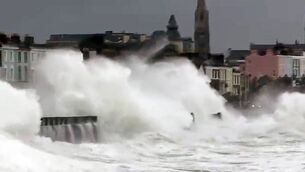Eastern European gangs skim ATM cards
The gangs are believed to be moving between major cities such as Limerick, Galway and Cork for two-week periods to target busy ATMs.
The Irish Payment Services Organisation (IPSO) said card-skimming crime had escalated since it first became a serious problem in 2003.













